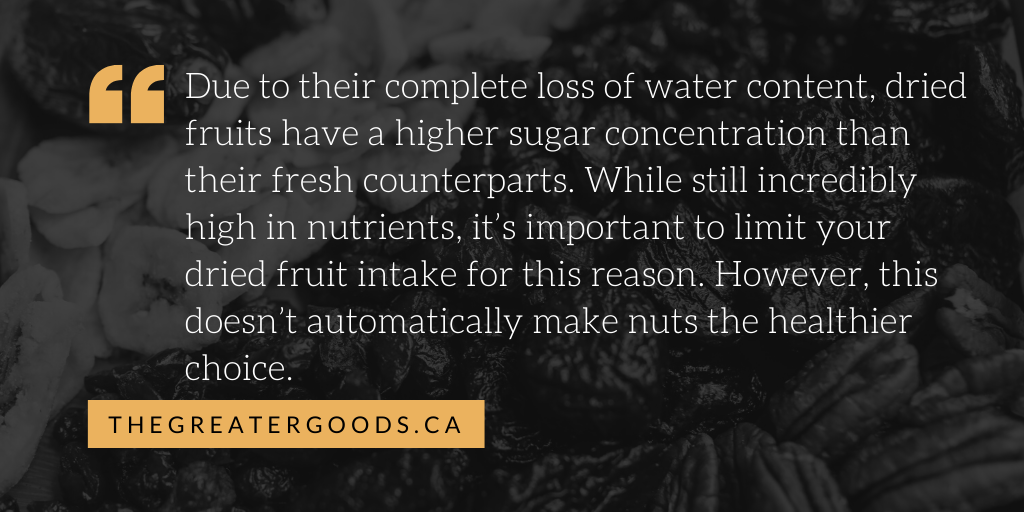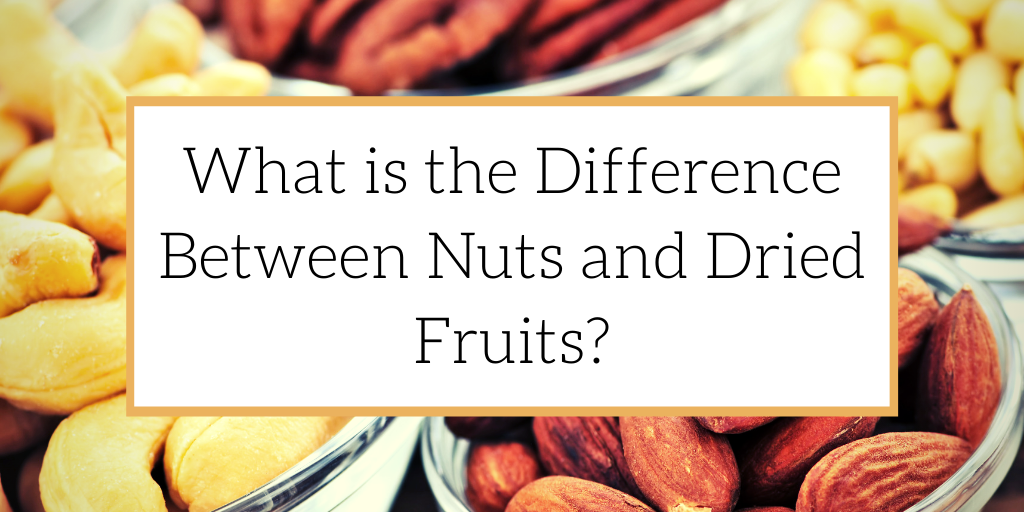When researching the healthiest and most delicious dried fruits out there, you may have been surprised to come across a variety of nuts included on these lists. Since when is a nut considered a dry fruit? Or have all of these tasty dry snacks been tricking us all along? While both nuts and dried fruits are easily transportable, provide useful nutrients for our health and are super easy to store and prepare, there are technical differences between the two. Let’s take a look at what sets these two similar snacks apart.
The Difference Between Dried Nuts and Fruits
To understand the difference between dried nuts and fruits, it’s important to understand what each truly is. The chewy dried fruit that we know and love is simply fruit that has been freeze dried, removing its water content (and leaving it high in sugars). Nuts are not dried out in this same fashion and are technically the “seeds” or the “kernels” of different plants that have similar nutritional characteristics to fruit.
Healthline.com explains the intricacies in truly separating these two dried snacks apart:
“Botanically, nuts are classified as a fruit that has a single edible seed with a hard, inedible outer shell. They’re considered indehiscent, which means that their shell doesn’t open when ripe. However, a lot of foods that people consider nuts are really the seeds of drupes — fruits whose flesh surrounds a single shell with a seed inside. For example, almonds, cashews, Brazil nuts, walnuts, pecans, macadamia nuts, pistachios, pine nuts, and most other nuts are botanically the seeds of drupes. Meanwhile, true nuts include chestnuts, acorns, and hazelnuts. Interestingly, peanuts — one of the most popular nuts in the world — are technically a legume and thus botanically a vegetable. However, peanuts’ nutrient profile and characteristics are closer to that of other nuts. Nutritionally, most nuts’ nutrient composition resembles legumes rather than fruit due to their high protein content.”
Are Nuts or Dried Fruits Healthier?

Due to their complete loss of water content, dried fruits have a higher sugar concentration than their fresh counterparts. While still incredibly high in nutrients, it’s important to limit your dried fruit intake for this reason. However, this doesn’t automatically make nuts the healthier choice.
The Health Site explains how both dried snacks are beneficial to a healthy diet, as long as eaten in moderation:
“Though both have their own set of health benefits, you need to eat them in moderation. Nuts are high in calories so one needs to limit their intake. Besides proteins, vitamins, minerals and healthy fats, they also have saturated fats. So heart patients shouldn’t consume too much of them. Same goes for weight watchers because of their high calorific value. Salted, fried or honey or sugar coated nuts are a strict no-no. Eat them raw after soaking in water overnight.”
Tips On Buying Nuts and Dried Fruits
When sourcing dried fruits and nuts, it’s important to remember that not all are sold equally. While some nuts have been artificially salted or sweetened, dried fruit is also often altered from its original state.
NYSpiceShop.com tells us more on what you should look for when shopping for nuts and dried fruits:
“With both nuts and dried fruits, you should take a look at the components in the case of packaged nuts and dried fruits. You need to avoid nuts, which have been artificially salted, sweetened or dried. Also, you also need to avoid buying dried fruits which have sugar listed as a component. Dried fruit is naturally sweet, and synthetic sweeteners add calories without any additional nutrition. For fruits which are likely to be bitter once dried like cranberries, search for dried cranberries which have been sweetened with 100 percent natural fruit juice.”
Here at The Greater Goods, we offer consultation services for your business, from food production to distribution. If you’re looking for advice on how to get up and running, we offer a free consultation with our expert food industry consultants and food brokers.
